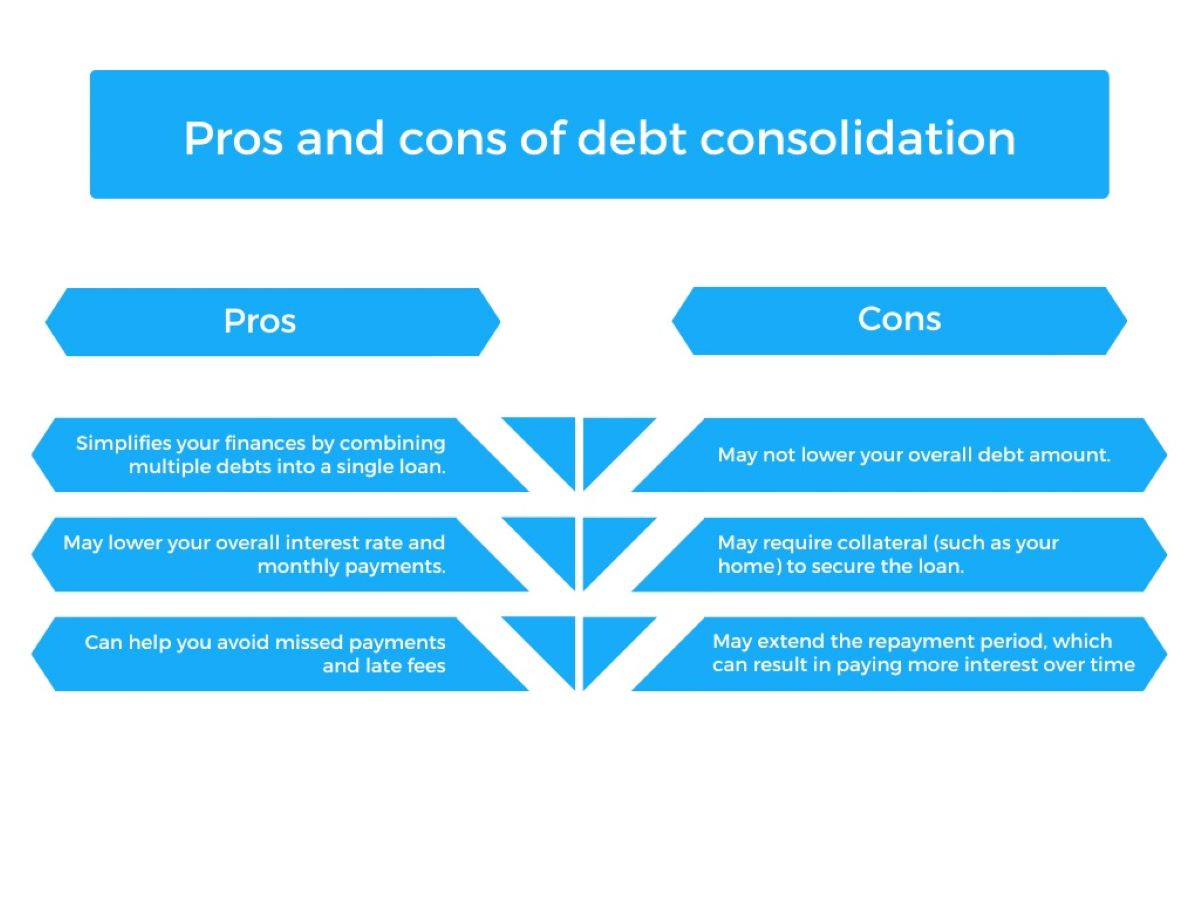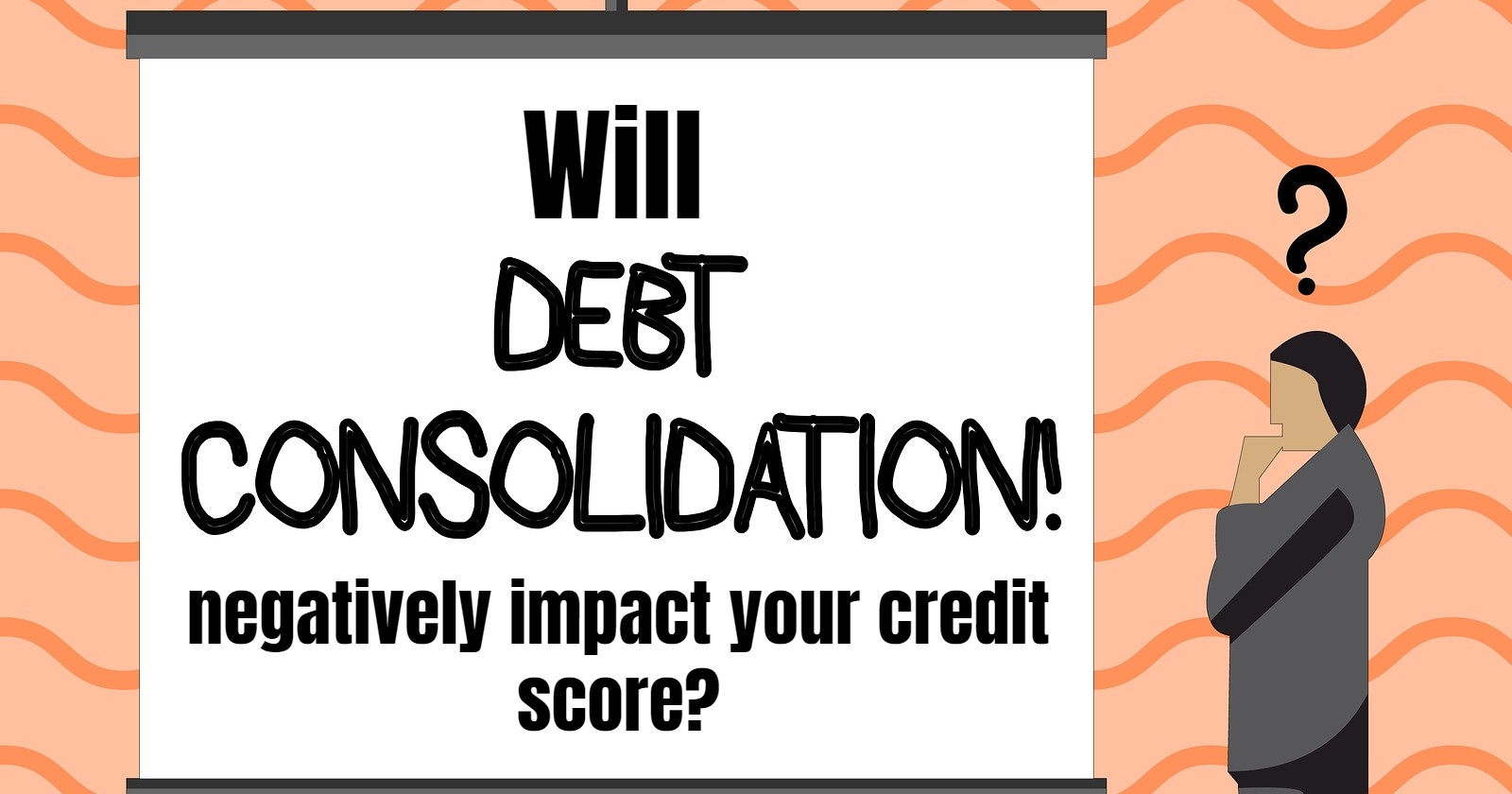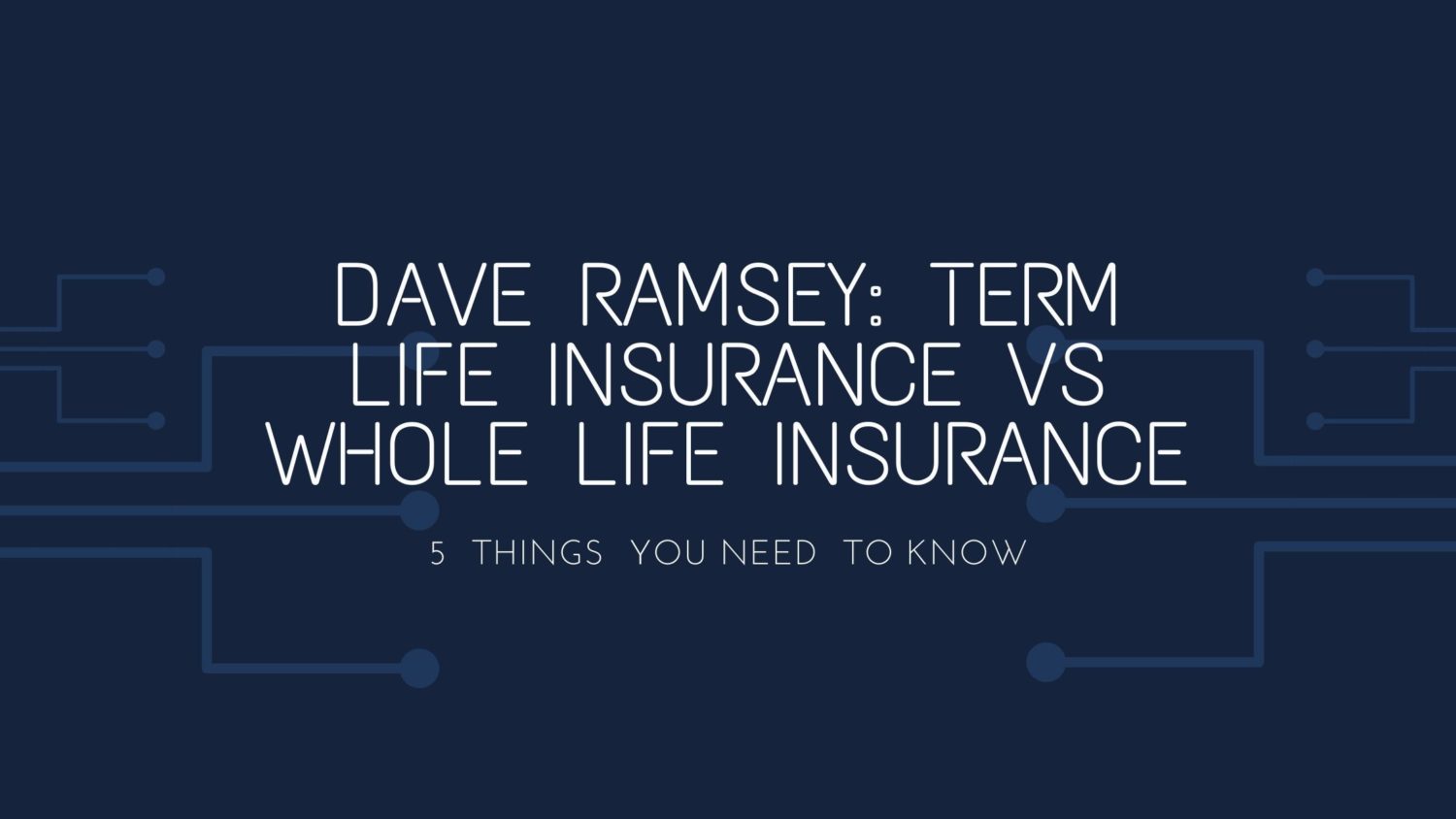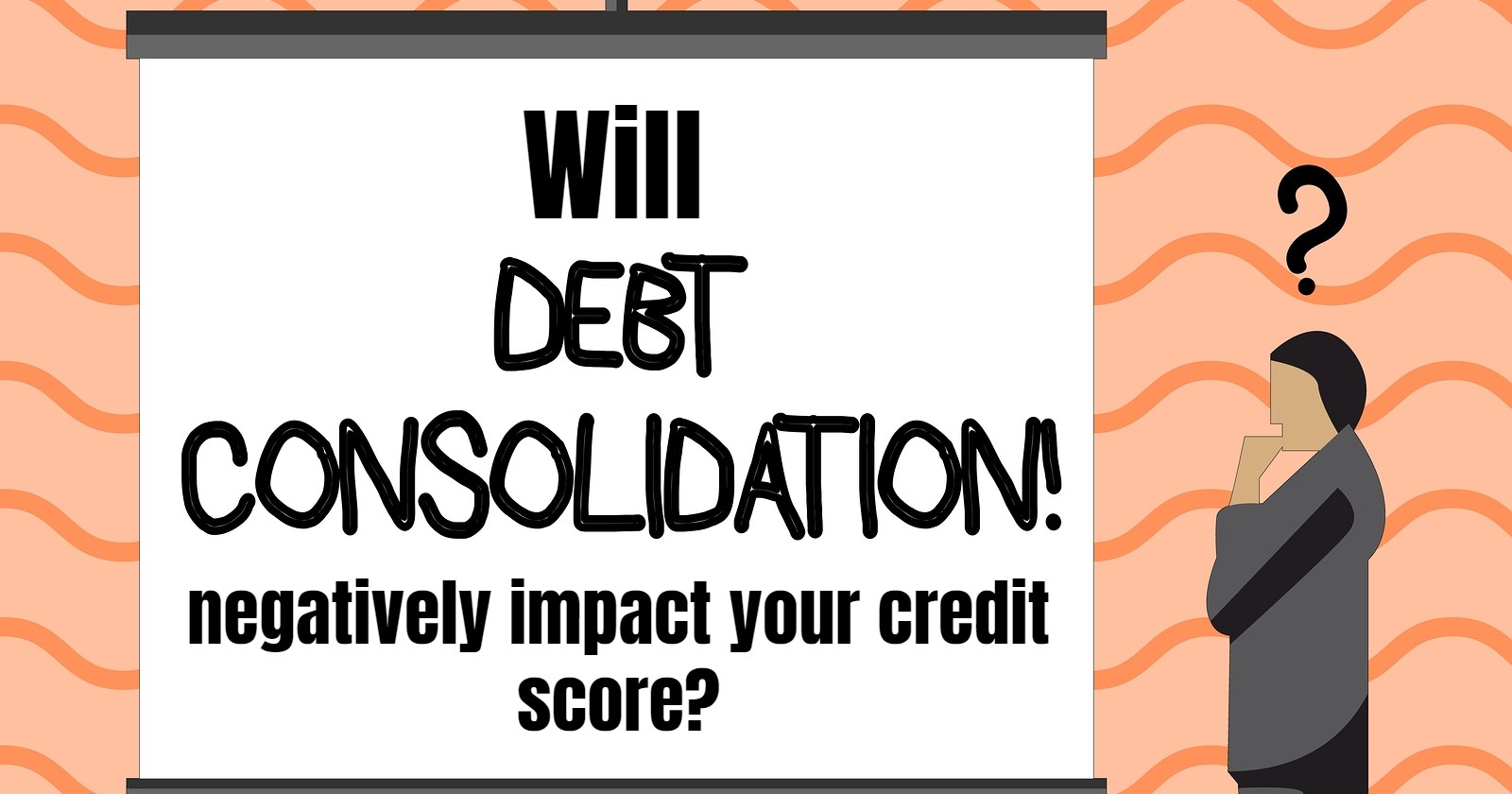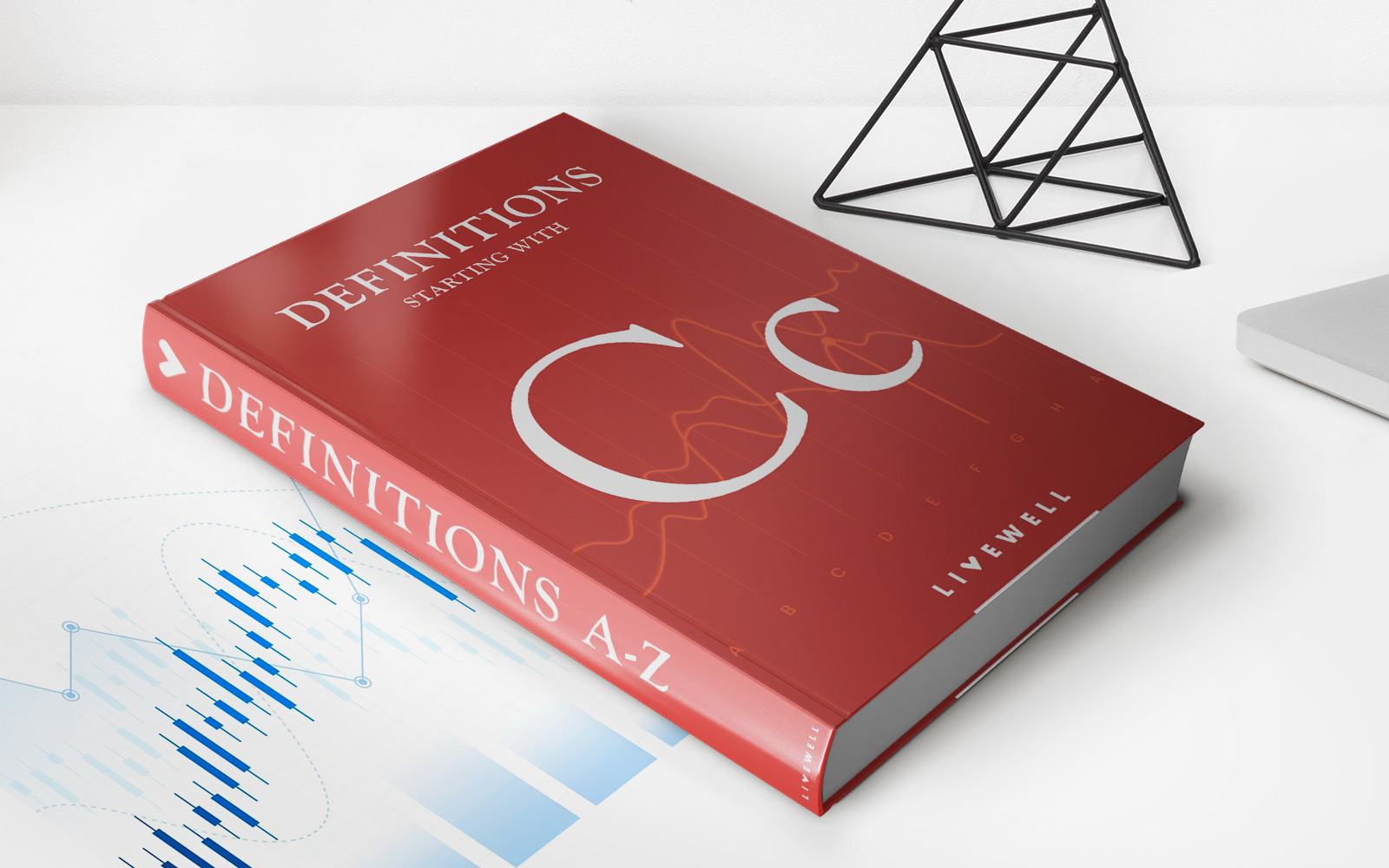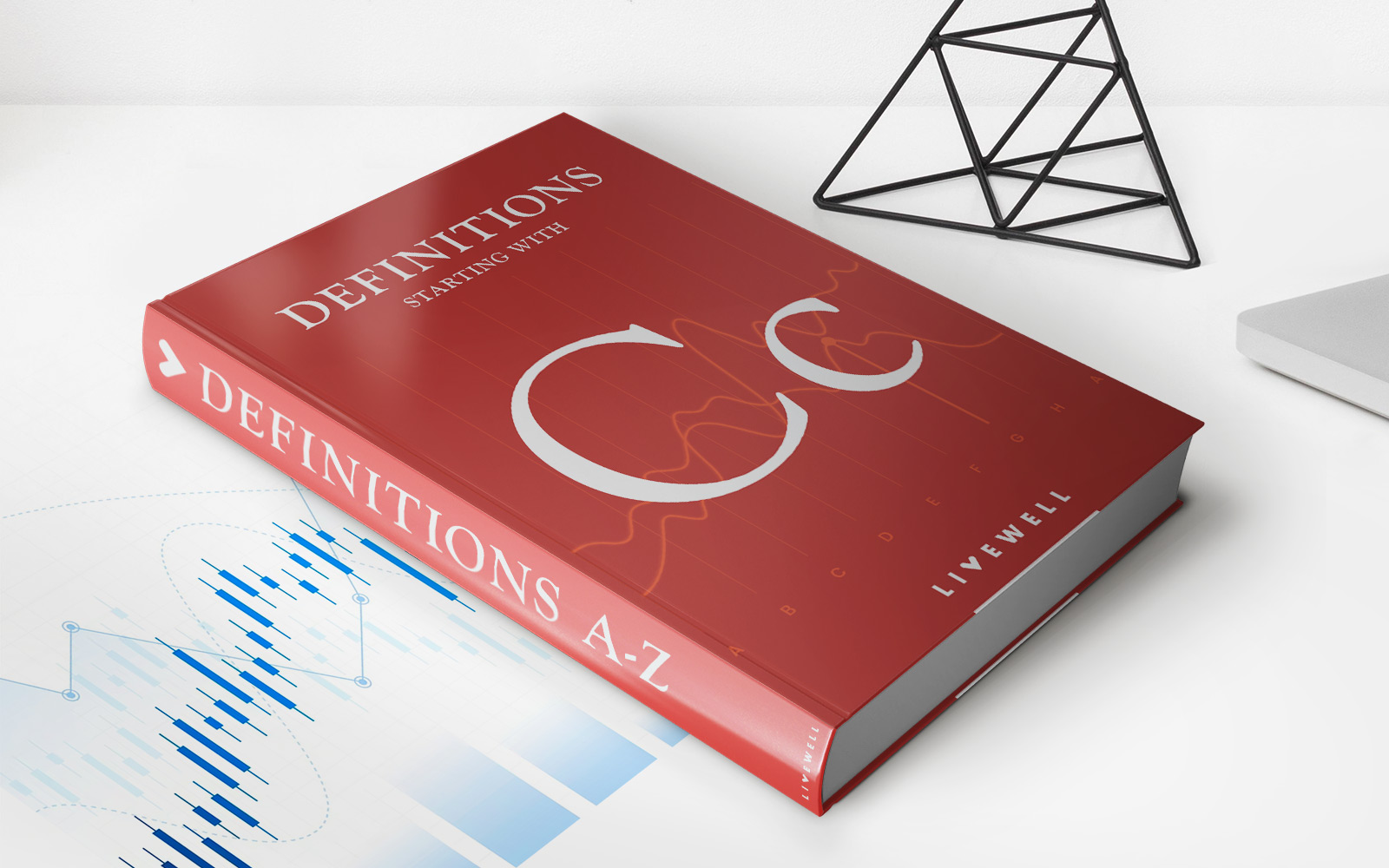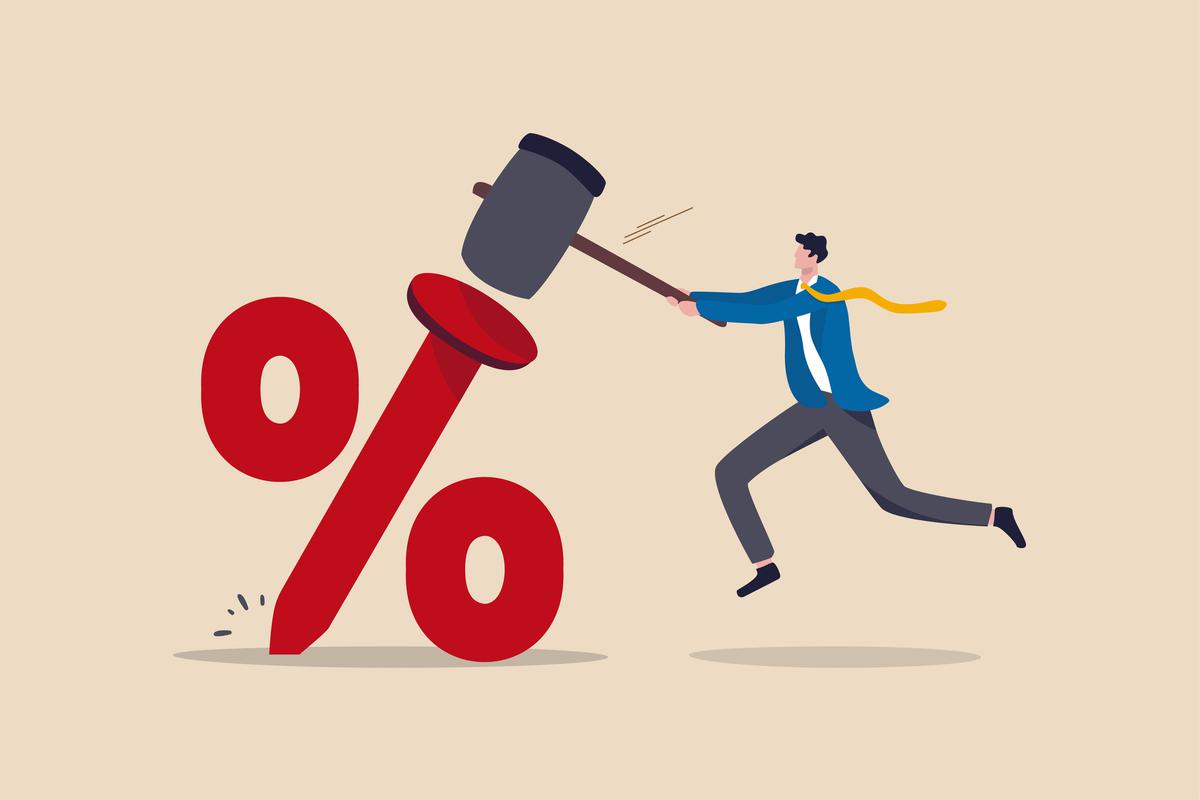Home>Finance>How Does Dave Ramsey Feel About Debt Consolidation


Finance
How Does Dave Ramsey Feel About Debt Consolidation
Published: December 21, 2023
Discover Dave Ramsey's stance on debt consolidation and how it fits into your overall financial plan. Learn more about managing your finances with expert advice from one of the most trusted names in personal finance.
(Many of the links in this article redirect to a specific reviewed product. Your purchase of these products through affiliate links helps to generate commission for LiveWell, at no extra cost. Learn more)
Table of Contents
Introduction
Debt consolidation is a popular financial strategy for individuals looking to simplify their debt management and potentially reduce their interest rates. However, not everyone in the finance world is a proponent of this approach. One influential figure who offers a unique perspective on debt consolidation is Dave Ramsey.
Dave Ramsey, a renowned personal finance expert, radio host, and author, has helped millions of people regain control of their finances through his practical and no-nonsense approach. His advice is rooted in his own personal experience of overcoming financial hardships and becoming completely debt-free.
In this article, we will delve into Dave Ramsey’s views on debt consolidation and why he often advises against it. We will also explore alternative methods for managing debt, to provide you with a well-rounded understanding of your options when it comes to conquering your debt.
So, if you’re curious about how Dave Ramsey feels about debt consolidation and why, keep reading to gain valuable insights into this controversial topic.
Who is Dave Ramsey?
Dave Ramsey is a well-known financial expert and the founder of Ramsey Solutions, a company dedicated to providing financial education and guidance to individuals and families. As a bestselling author, Ramsey has penned several books, including “The Total Money Makeover” and “Financial Peace.” His radio show, “The Dave Ramsey Show,” is one of the most popular personal finance programs in the United States.
What sets Dave Ramsey apart from many other financial gurus is his personal story of financial turmoil and subsequent triumph. After building an impressive real estate portfolio, Ramsey found himself deep in debt, facing bankruptcy in the early 1990s. Determined to turn his life around, he developed a plan to eliminate his debts, which he eventually did using the principles he now teaches.
Ramsey’s approach to personal finance focuses on living within one’s means, eliminating debt, and building wealth for the future. He advocates for a disciplined and intentional approach to money management, emphasizing the importance of budgeting, saving, and investing.
One of the cornerstones of Ramsey’s philosophy is his “Baby Steps” method, which provides a step-by-step guide to achieving financial freedom. These steps include starting with a $1,000 emergency fund, paying off all debt (except for the mortgage), saving for retirement, and building wealth.
As a highly respected figure in the world of personal finance, Dave Ramsey’s advice and opinions carry significant weight. Many individuals and families have successfully transformed their financial lives by following his principles and strategies.
What is Debt Consolidation?
Debt consolidation is a financial strategy that involves combining multiple debts into a single loan or line of credit. The purpose of debt consolidation is to simplify debt management and potentially reduce overall interest payments.
Here’s how it typically works: Instead of making multiple debt payments to various creditors each month, you take out a new loan or credit account to pay off all your existing debts. This leaves you with just one monthly payment to focus on.
Debt consolidation can be achieved through various methods, including obtaining a personal loan, transferring balances to a low-interest credit card, or enrolling in a debt consolidation program. The specific approach you choose will depend on your financial situation and creditworthiness.
The main goal of debt consolidation is to streamline your debt repayment process, making it easier to manage and potentially saving you money on interest charges. By consolidating your debts, you may benefit from a lower interest rate or a longer repayment term, which can result in lower monthly payments.
However, it’s crucial to approach debt consolidation with caution and a thorough understanding of the associated risks and potential drawbacks. While debt consolidation can be a useful tool for some individuals, it is not a one-size-fits-all solution. It is important to carefully evaluate your personal circumstances and consider the pros and cons before deciding to consolidate your debts.
In the following sections, we will explore Dave Ramsey’s perspective on debt consolidation and the reasons behind his cautious approach to this strategy.
Dave Ramsey’s Views on Debt Consolidation
Dave Ramsey is known for his straightforward and no-nonsense approach to personal finance. When it comes to debt consolidation, Ramsey has a distinct viewpoint that differs from conventional wisdom.
Ramsey generally advises against debt consolidation because he believes it doesn’t address the root cause of the problem: overspending and mismanagement of money. He argues that consolidating debt may provide temporary relief but does not solve the underlying financial habits that got individuals into debt in the first place.
One of the key reasons Ramsey is skeptical about debt consolidation is that it often requires borrowing against an asset like a home or a retirement account. This can put individuals at risk of losing their assets if they’re unable to meet the new loan obligations. Ramsey believes that putting one’s home at stake is not worth it for the sake of consolidating debts.
Moreover, Ramsey emphasizes the importance of taking responsibility for one’s financial decisions. He encourages individuals to face their debts head-on and develop a plan to pay them off systematically. Ramsey’s preferred method for paying off debts is called the “Debt Snowball Method,” where you focus on paying off the smallest debts first while making minimum payments on the rest. As each debt is paid off, the freed-up money is then applied to the next smallest debt, creating a snowball effect that accelerates debt repayment.
Another reason Ramsey cautions against debt consolidation is the potential for creating a false sense of progress. He argues that by consolidating debts into one payment, individuals may perceive that they’re making progress, when in reality, they have simply shifted their debts around. The underlying problem of overspending and financial mismanagement remains unresolved.
It’s important to note that while Dave Ramsey advises against debt consolidation in most cases, he acknowledges that there may be specific circumstances where it can be beneficial. For example, if an individual has already made significant progress in improving their financial habits and has the discipline to avoid incurring new debt, debt consolidation may be a viable option.
Ultimately, Dave Ramsey’s views on debt consolidation stem from his belief in tackling the root causes of debt and enacting fundamental changes to one’s financial behavior. He emphasizes the importance of living within one’s means, budgeting effectively, and saving for the future as the keys to financial success.
The Importance of a Debt Snowball Method
When it comes to paying off debts, Dave Ramsey advocates for using the Debt Snowball Method. This approach focuses on tackling debts in a specific order, based on their balances rather than their interest rates.
The Debt Snowball Method is based on the principle that small victories can provide the motivation and momentum needed to continue on the path to debt freedom. Here’s how it works:
- List all your debts, starting with the smallest balance and ending with the largest balance.
- Make the minimum payments on all debts except for the smallest one.
- Throw all your extra money towards paying off the smallest debt while continuing to make minimum payments on the larger debts.
- Once the smallest debt is paid off, take the money you were putting towards that debt and apply it to the next smallest debt.
- Repeat this process until all debts are paid off.
The Debt Snowball Method prioritizes the psychological aspect of debt repayment. By focusing on paying off the smallest debts first, individuals experience a sense of accomplishment, building confidence and motivation. Ramsey believes this positive reinforcement is crucial in staying motivated throughout the debt payoff journey.
While some financial experts argue that the Debt Snowball Method may not be the most efficient in terms of interest savings, Ramsey argues that the behavioral aspect outweighs the mathematical benefits. By using this method, individuals are more likely to stick with their debt repayment plan and achieve success.
Ramsey acknowledges that the Debt Snowball Method may not be for everyone. Some individuals may prefer a more strategic approach that prioritizes debts with higher interest rates. However, for those who struggle with staying motivated or have minimal debt and are looking for quick wins, the Debt Snowball Method can be highly effective.
The key to making the Debt Snowball Method work is creating a solid budget and finding ways to increase your income to allocate more money towards debt repayment. This might involve cutting back on expenses, taking on a side gig, or renegotiating bills to free up more money for debt payments.
Ultimately, the Debt Snowball Method is not just a debt repayment strategy but a mindset shift. It instills discipline, determination, and a sense of empowerment in individuals as they take control of their finances and work towards their goal of becoming debt-free.
Pros and Cons of Debt Consolidation
Debt consolidation can be an effective tool for managing debt, but it’s important to weigh the pros and cons before deciding if it’s the right approach for you. Here are some advantages and disadvantages of debt consolidation:
Pros:
- Simplified Debt Management: One of the main benefits of debt consolidation is that it simplifies debt management. Instead of making multiple payments to different creditors, you only need to make one monthly payment, easing the burden of keeping track of various due dates and payment amounts.
- Potential Lower Interest Rates: Debt consolidation may offer the opportunity to secure a lower interest rate compared to what you’re currently paying on your debts. This can result in reduced overall interest charges and potentially save you money over the life of the loan.
- Improved Cash Flow: If the new consolidated loan offers a longer repayment term or lower monthly payments, it can help improve your cash flow. This can provide temporary relief and make it easier to manage your expenses while working towards paying off your debt.
- End Harassment from Creditors: If you have been struggling to keep up with multiple debt payments and are receiving calls from creditors or collection agencies, debt consolidation can put an end to the harassing phone calls and provide you with some peace of mind.
Cons:
- Risk of Getting Deeper into Debt: One of the pitfalls of debt consolidation is that it may tempt individuals to accumulate more debt. If you consolidate your debts without addressing the underlying causes of your financial struggles, you may find yourself in a worse situation in the long run.
- Potential for Higher Interest Rates: While debt consolidation can lead to lower interest rates, it is essential to carefully evaluate the terms and conditions of the new loan or credit account. In some cases, the interest rate may be higher, resulting in increased overall interest costs.
- Transfer Fees and Costs: Depending on the method you choose for debt consolidation, there may be associated fees and costs. For example, if you opt for a balance transfer to take advantage of a low-interest credit card, there may be a transfer fee involved. It’s important to consider these additional expenses when weighing the benefits.
- Risk of Losing Collateral: If you use a secured loan, such as a home equity loan, to consolidate your debts, there is a risk of losing your collateral (e.g., your home) if you default on the loan. This can be a significant drawback and should be carefully considered.
Before pursuing debt consolidation, take the time to assess your financial situation, consider the potential benefits and drawbacks, and evaluate alternative strategies for managing your debt. It may also be helpful to seek advice from a financial professional who can guide you through the decision-making process.
Alternatives to Debt Consolidation
While debt consolidation can be a useful strategy for some individuals, it’s not the only option available for managing debt. Depending on your circumstances and financial goals, you may want to explore alternative approaches. Here are a few alternatives to debt consolidation:
1. Create a Debt Repayment Plan: Instead of consolidating your debts, you can develop a personalized debt repayment plan. Start by listing out all your debts and prioritize them based on interest rates or balances. Then, allocate extra funds each month towards paying off the highest priority debt while making minimum payments on the others. Progressively work your way down the list until you’ve paid off all your debts.
2. Debt Negotiation or Settlement: If you’re struggling to make payments on your debts, you may consider negotiating with your creditors or working with a debt settlement company. These approaches aim to reduce the total amount owed by negotiating lower repayment amounts or settlements. It’s important to note that these methods can have consequences on your credit score and should be carefully considered.
3. Debt Management Program (DMP): A debt management program is an arrangement with a credit counseling agency that helps you consolidate your debts into one monthly payment. The agency negotiates with your creditors to lower interest rates and may provide financial education and support. DMPs can be an effective way to manage your debts and get on track with a structured repayment plan.
4. Improve Your Budgeting and Financial Habits: Often, the root cause of debt problems lies in poor money management and overspending. Take a close look at your budget and identify areas where you can cut back expenses. Focus on living within your means, saving for emergencies, and building a strong financial foundation. By improving your financial habits, you can prevent future debt issues.
5. Seek Professional Financial Advice: If you’re feeling overwhelmed or unsure about the best course of action, it can be beneficial to consult with a professional financial advisor. They can assess your specific situation, offer personalized advice, and guide you towards the most suitable debt management strategy.
It’s essential to carefully evaluate each alternative to debt consolidation and assess how it aligns with your financial goals and capabilities. Additionally, be cautious of “quick-fix” solutions or companies that promise to eliminate your debts entirely. Remember that sustainable debt management requires commitment, discipline, and a long-term perspective.
Ultimately, the key is to find a method that works best for you and supports your journey towards financial freedom.
Conclusion
Debt consolidation can be a viable option for individuals seeking to simplify their debt management and potentially reduce their interest rates. However, it’s essential to approach debt consolidation with caution and consider the perspectives of experts like Dave Ramsey.
Dave Ramsey, a renowned personal finance expert, advises against debt consolidation for many individuals. He believes that debt consolidation often fails to address the underlying financial habits that lead to debt accumulation in the first place. Ramsey emphasizes the importance of taking responsibility for one’s financial decisions, developing a plan to pay off debts systematically, and making sustainable changes to one’s financial behavior.
In addition to debt consolidation, there are alternative strategies for managing debt, such as creating a personalized debt repayment plan, debt negotiation or settlement, participating in a Debt Management Program (DMP), improving budgeting and financial habits, or seeking professional financial advice. Each option has its own advantages and considerations, and it’s crucial to select the approach that aligns best with your financial goals and circumstances.
Ultimately, becoming debt-free requires commitment, discipline, and a long-term perspective. Whether you choose debt consolidation or an alternative approach, it’s important to address the root causes of your debt, develop a solid budget, and make sustainable changes to your financial habits. By taking control of your finances and implementing effective debt management strategies, you can work towards a more secure and financially sound future.
Remember to consult with a financial professional to assess your specific situation and guide you towards the most appropriate debt management strategy. With determination and the right tools, you can overcome financial challenges and achieve your goal of becoming debt-free.

